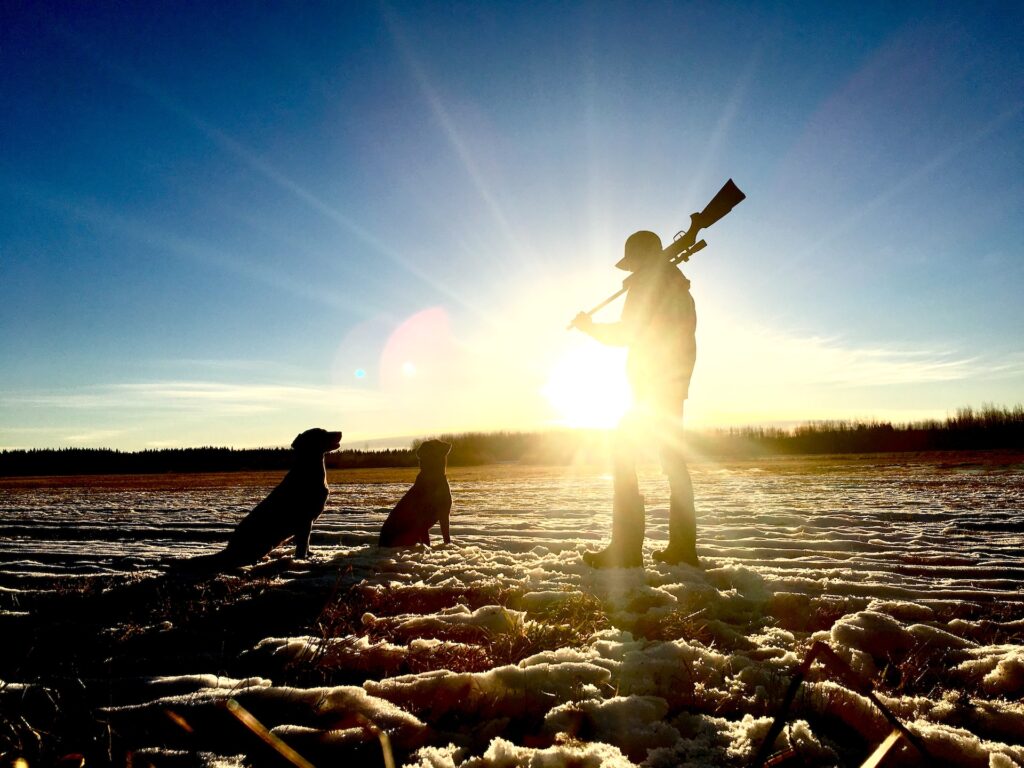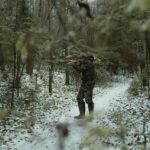Hunting is often considered a sport due to the physical exertion and skill required, the competition between hunters, and the adherence to a set of rules and regulations. Despite some controversy, many people view hunting as a legitimate sport that meets the criteria of physical activity, skill, and competition.
The debate on whether hunting can be classified as a sport revolves around differing personal interpretations of what constitutes a sport. While some argue that hunting fulfills the necessary criteria of physical exertion, skill, and competition, others contend that it does not align with their definition of a traditional sport.
This ongoing debate has sparked discussions on the ethical and environmental implications of hunting as a sport.
The determination of whether hunting is considered a sport varies depending on individual perspectives and beliefs. As opinions continue to differ, the debate surrounding hunting as a sport remains an ongoing and contentious issue.
Check out this Youtube video: “Trophy Hunting – A Barbaric Sport – YouTube” and learn why hunting is considered a controversial sport from a different perspective.
Hunting as a Physical Activity
Hunting requires engaging in physical movement that involves various activities such as walking, hiking, tracking, and carrying equipment or gear over diverse terrains. It demands physical strength, stamina, and agility to navigate through rugged landscapes and endure extended periods of activity. The physical exertion in hunting involves cardiovascular fitness, flexibility, and muscular endurance. Additionally, the act of carrying hunting equipment, maneuvering through uneven terrains, and the demands for precision shooting necessitate physical adeptness and coordination.
Engaging in physical movement during hunting
Engaging in physical movement during hunting entails traversing challenging terrains, often involving uneven ground, dense foliage, and variable weather conditions. It involves walking or covering considerable distances, requiring endurance and physical resilience.
Hunting also demands specific movements such as crouching, crawling, and briskly climbing uphill, necessitating flexibility and muscular strength. Furthermore, hunting with certain tools like bows or firearms involves physical dexterity and coordination to ensure precise aiming and manipulation of equipment.
Hunting offers a wholesome physical workout through activities like stalking, hiking, carrying equipment, and dragging game, effectively engaging various muscle groups and promoting overall physical fitness. Regular hunting activities contribute to improved cardiovascular health, enhanced muscular strength, and heightened flexibility.
The vigorous nature of hunting enhances individuals’ physical endurance, fostering resilience, and robustness required for sustained outdoor activities.
| Physical Activity Benefits | |
|---|---|
| Improved cardiovascular fitness | Enhanced heart and lung capacity due to brisk movements. |
| Muscular endurance | Engaging in tasks like carrying heavy loads and traversing rough terrains. |
| Enhanced flexibility | Necessary for navigating through dense vegetation and uneven landscapes. |
Mental preparedness and alertness required in hunting
Hunting necessitates more than just physical prowess; it demands mental preparedness and heightened alertness. The act of hunting encompasses mental challenges such as developing strategic plans, discerning environmental cues, and maintaining focus for extended periods. Mental agility, sound decision-making, and sharp situational awareness are crucial components in successful hunting endeavors.
Hunters need to possess a high level of vigilance and concentration to detect subtle sounds, movements, and visual cues in their surroundings. The mental aspects of hunting involve orchestrating tactical maneuvers, interpreting animal behavior, and adapting to dynamic conditions.
Preparedness in handling unexpected situations, swiftly assessing risks, and making calculated decisions are essential mental attributes for hunters.
The mental demands of hunting are vital for maintaining safety, assessing ethical considerations, and ensuring effective outcomes. Moreover, the cognitive challenges in hunting foster mental sharpness, strategic thinking, and the ability to adapt to diverse circumstances.
As such, hunting encapsulates a holistic blend of physical exertion and mental acuity, constituting it as an engaging and demanding sport.
Hunting as a physical activity entails a harmonious blend of physical endurance, agile movements, and mental fortitude, making it a comprehensive sporting pursuit involving rigorous challenges and multifaceted skill sets.
Health Benefits of Hunting
Nutritional benefits of hunting
Hunting is a sport with substantial nutritional benefits due to the lean meat of wild game such as deer, elk, and antelope. This meat is exceptionally low in total and saturated fat, making it a healthier protein option. Additionally, it contains a higher proportion of polyunsaturated fatty acids, which are essential for overall health. Wild game provides an excellent source of protein, B-vitamins, iron, and zinc, essential nutrients for the body. A 3-ounce serving of whitetail deer, for example, offers 135 calories, 26g of protein, and only 3g of fat, making it a nutritious and wholesome dietary choice.
Nutritional Comparison of Wild Game and Lean Beef
| Type of Meat | Calories | Protein (g) | Fat (g) |
|---|---|---|---|
| Whitetail Deer (3 oz) | 135 | 26 | 3 |
| Lean Beef (3 oz) | 155 | 25 | 7 |
| Elk (3 oz) | xx | xx | xx |
Physical fitness and exercise through hunting
Embracing hunting as a sport intrinsically promotes physical fitness and exercise. It qualifies as a “moderate-intensity aerobic” activity, involving substantial movement and physical exertion.
Preparing for the hunting season entails physical rigour, from setting up blinds, traps, and bait to maintaining food plots. The entire hunting process demands physical activity, making it an excellent way to stay physically fit.
Moreover, strength training is crucial for hunters, as it enhances muscular endurance and core stability. Incorporating exercises involving free weights and bodyweight movements effectively contributes to the necessary physical readiness for hunting expeditions.
Strength Training Exercises for Hunting
| Exercise | Purpose |
|---|---|
| Free Weights | Build Muscular Endurance |
| Bodyweight Movements | Enhance Core Stability |
| Cardio | Improve Cardiovascular Endurance |
| Yoga/Pilates | Increase Flexibility |
Hunting aligns with both nutritional and physical fitness needs, making it a holistic sport that supports overall well-being and health.
Environmental Conservation
How hunting supports conservation efforts
Hunting plays a pivotal role in supporting conservation efforts, as it provides essential funding and aids in wildlife management. Through hunting licenses and fees, substantial financial resources are channeled towards conservation programs, which aid in safeguarding natural habitats, preserving endangered species, and ensuring sustainable wildlife populations.
Moreover, hunting effectively manages wildlife populations, preventing overpopulation and minimizing the risk of disease outbreaks, ultimately contributing to a balanced ecosystem.
Hunting also serves as a valuable wildlife management tool, facilitating the regulation of wildlife populations in environments based on their carrying capacity. By preventing overpopulation, hunters assist in curbing instances of crop damage, thereby minimizing agricultural losses and promoting ecological equilibrium.
Additionally, hunting activities offer critical support for disease management among wildlife populations, mitigating the spread of contagious illnesses and preserving the overall health of ecosystems.
Contributions of hunters to wildlife conservation
The contributions of hunters to wildlife conservation are immense, as they have played a pivotal role in preserving the natural environment and ensuring the sustainability of diverse animal species. Notably, hunters have made substantial financial contributions, with funds amounting to over $14 billion being directed towards conservation endeavors since 1937, through programs like Pittman-Robertson.
This significant financial support has been instrumental in the implementation of conservation initiatives, leading to the protection of vital habitats and the conservation of endangered species.
Furthermore, hunters annually contribute over $372 million for conservation efforts, emphasizing their ongoing commitment to environmental preservation. Their unwavering support has enabled the execution of various conservation projects, encompassing habitat restoration, wildlife protection, and ecological research.
The historical connection between hunting and conservation serves as a testament to the vital role of hunters in safeguarding wildlife, shaping sustainable ecosystems, and ensuring the long-term viability of natural resources.
| Key Contributions of Hunters to Wildlife Conservation |
|---|
| Financial support exceeding $14 billion |
| Annual contributions surpassing $372 million |
| Integral role in preserving natural habitats |
| Significant aid in species conservation |
Wildlife Population Management
Hunting as a means of controlling wildlife population:
Hunting plays a crucial role in controlling wildlife populations by managing the number of animals. Overpopulation of certain species can lead to depletion of food sources, increased human-wildlife conflicts, and damage to the natural habitat.
Through regulated hunting, surplus animals are removed to ensure a sustainable balance between the wildlife population and their respective habitats. This practice is based on scientific data that indicate when animal populations exceed the carrying capacity of their environment, it becomes necessary to implement effective harvest and population control measures.
The impact of hunting on maintaining ecological balance:
Hunting has a multifaceted impact on maintaining ecological balance. When executed responsibly, it aids in avoiding overgrazing by herbivores, which can prevent destructive environmental consequences such as soil erosion and loss of vegetation.
Moreover, controlled hunting helps in managing and monitoring predator and prey species, thereby contributing to a more sustainable ecosystem. Furthermore, ethical hunters are active contributors to wildlife conservation by supporting habitat preservation through regulated hunting practices.
| Pros of Hunting for Wildlife Population Management | Cons of Hunting for Wildlife Population Management |
|---|---|
| Controlled population management | Risk of upsetting the ecosystem balance |
| Prevention of overgrazing | Potential decline in genetic diversity |
| Contribution to wildlife conservation | Ethical concerns and animal welfare issues |
Economic Stimulus
Hunting stimulates the economy in various ways. The revenue generated from hunting activities significantly contributes to economic growth, job creation, and business development.
Sportsmen spending on hunting gear, lodging, food, and other essentials directly injects capital into the economy, supporting local businesses and large manufacturing companies. The billions of dollars spent by hunters annually have a cascading effect on the overall economy, enriching small communities and enterprises while also benefiting major corporations.
How hunting stimulates the economy
Hunting serves as a vital funding source for conservation efforts, benefitting both game and non-game species. The substantial spending by hunters plays a pivotal role in wildlife management and habitat improvement, ensuring the preservation of natural resources.
Additionally, the economic activity generated from hunting activities, such as deer hunting, underscores its tangible impact on the workforce and overall economic stability.
Notably, hunting contributes to wildlife conservation and the broader ecosystem, dispelling the misconception that state wildlife agencies are funded primarily by taxpayers. In reality, the crucial financial support from hunters significantly sustains conservation programs.
Furthermore, activities such as hunting and wildlife observation contribute substantially to revenue generation, with hunting prominently outweighing the economic impact of solely observing wildlife.
Revenue generation through hunting activities
The revenue generated through hunting activities encompasses a vast spectrum, from enhancing agricultural sectors to supporting local businesses in smaller communities. Whether through the purchase of hunting equipment, accommodations, or related goods and services, hunters and anglers continuously uphold the economy at various levels.
Moreover, the economic footprint of hunting on the American workforce and wildlife conservation underscores its extensive contributions to national and regional economic stimulation.
Hunting plays a pivotal role in stimulating the economy by fostering revenue generation, job creation, and ecological preservation. The multifaceted impact of hunting activities on the economic landscape emphasizes its significance as a driver of sustainable growth and wildlife management.
| Resolve | Economic Impact |
|---|---|
| Revenue Generation | Billions of dollars annually |
| Job Creation | Supports thousands of jobs |
| Habitat Improvement | Critical funding for conservation |
| Small Communities | Enrichment of local businesses |
| Large Corporations | Positive impact on major companies |
| Wildlife Management | Pivotal role in conservation |
| Economic Footprint | Extensive contributions to economy |
| Sustainable Growth | Driver of economic stimulation |
Historical Perspective of Hunting
Origins of hunting as a sport
Hunting as a sport has a rich historical origin, dating back to ancient times when it was initially embraced as a noble pastime. The aristocratic celebrations of hunting in ancient Roman times laid the foundation for hunting‘s evolution into a sporting activity.
It was an exclusive pursuit of rulers and the nobility, as they had the leisure and financial means to engage in elaborate hunting expeditions.
Evolution of hunting as a recreational activity
The evolution of hunting into a recreational activity has been a fascinating journey through history. Initially, it was primarily a pursuit for the wealthy, such as the nobility, who viewed hunting as a leisure pursuit that showcased their status and power.
Over time, however, hunting transcended class boundaries and became more universally accessible. Today, hunting has evolved into a recreational activity enjoyed by individuals from diverse backgrounds, fostering a sense of camaraderie and connection with nature.
Animal Ethics and Welfare
Debate on the ethics of hunting as a sport
Hunting as a sport has sparked a heated debate regarding its ethical considerations. Some argue that hunting promotes conservation efforts and wildlife management, providing necessary funds for habitat preservation and species protection.
The proponents of hunting as a sport also emphasize the heritage and cultural significance tied to hunting, advocating for its role in connecting individuals with nature and traditional practices. On the other hand, opponents raise concerns about the potential cruelty and inhumane treatment of animals, questioning the morality of pursuing recreational activities that involve the killing of wildlife for sport.
Furthermore, the ethical implications of hunting as a sport extend to issues of fair chase and sustainable utilization of natural resources. The concept of fair chase revolves around the notion of giving animals a fighting chance and ensuring that hunting practices do not result in unnecessary suffering or exploitation.
Moreover, the sustainable utilization of wildlife resources encompasses responsible harvesting and conservation measures to maintain ecological balance and prevent species depletion. As such, the ethical assessment of hunting as a sport hinges on considerations of animal welfare, ecological sustainability, and cultural significance.
Consideration for animal welfare in hunting practices
When examining hunting as a sport, it is crucial to address the ethical dimensions concerning animal welfare. The methodology and regulations governing hunting activities play a pivotal role in mitigating potential harm to wildlife and promoting humane treatment.
Regulatory frameworks and hunting practices should encompass measures to minimize suffering, ensure swift and humane kills, and prioritize the well-being of targeted animals. These considerations include utilizing appropriate hunting techniques, adhering to ethical hunting guidelines, and embracing a respectful ethos towards wildlife.
Moreover, hunters are encouraged to advocate for ethical conduct, which involves prioritizing clean kills, minimizing pain and distress, and upholding principles of respect for wildlife. Incorporating ethical hunting practices underscores the importance of acknowledging the inherent value of animals and recognizing the responsibility to preserve their well-being in the hunting context.
Additionally, fostering a culture of ethical hunting underscores the commitment to wildlife conservation and the promotion of sustainable interactions with the natural environment.
| Key Points to Remember |
|---|
| Debate around hunting as a sport |
| Emphasis on ethical considerations |
| Fair chase principles and sustainability |
| Regulatory measures for animal welfare |
Hunting as a Source of Nutrition
It’s tremendous to talk about the exceptional nutritional value that wild game meat offers. Wild game, including deer, antelope, elk, and moose, is packed with protein, essential B-vitamins, and essential minerals such as iron and zinc. This meat is renowned for being low in saturated fat, representing a prime source of lean protein. Remarkably, it can be easily incorporated into a variety of dishes, from barbecue delights to hearty stews. For example, a 3-ounce portion of wild sheep roast contains about 198 calories, 27 grams of protein, and 9 grams of fat. Compared to domestic animals like cows and chickens, game meats have an average of 4.3% fat, significantly lower than their domesticated counterparts.
Nutritional value of wild game meat
Wild game meat is an outstanding source of essential nutrients. It provides high-quality protein and is rich in B-vitamins, iron, and zinc. This type of meat serves as a crucial component of a health-conscious diet, offering a worthy alternative to traditional domesticated meats like beef and poultry. Additionally, wild game meat is low in saturated fat, making it an appealing choice for individuals seeking lean, protein-rich options. Incorporating wild game meat into one’s diet introduces a variety of essential nutrients, contributing to overall health and well-being.
Sustainable sourcing of food through hunting
Hunting contributes significantly to sustainable sourcing of food. Ethical hunting practices form the backbone of a sustainable lifestyle and are instrumental in providing an organic and renewable food source. It plays a vital role in addressing environmental impact and promoting conservation efforts. For instance, in areas where deer populations have grown excessively, hunting aids in curbing overpopulation, thus preventing further environmental damage and promoting a healthier ecosystem. Moreover, hunting activities help fund various conservation initiatives and serve as a mechanism for controlling wildlife populations, ensuring a balance in natural habitats.
Benefits of hunting for sustainable food sourcing
Hunting plays a crucial role in sustainable food sourcing by providing access to organic meat while reducing the environmental impact caused by overpopulation of certain animal species. This age-old practice presents an opportunity to obtain food in a manner that aligns with environmentally conscious principles. Additionally, hunting enables the conservation of various ecosystems by managing wildlife populations and preventing habitat destruction. By actively participating in hunting, individuals contribute to the creation of a more sustainable food system, ensuring the availability of organic, locally-sourced meat and supporting wildlife conservation efforts.
| Benefits of Sustainable Hunting |
|---|
| 1. Provides access to organic, locally-sourced meat |
| 2. Reduces environmental impact caused by overpopulation |
| 3. Supports wildlife conservation efforts |
| 4. Contributes to a sustainable food system |
Hunting stands as an essential avenue for obtaining nutrition through wild game meat while fostering sustainability in food sourcing. The nutritional richness of wild game meat, coupled with the environmental benefits of ethical hunting, heralds a paradigm of responsible, health-conscious consumption and ecosystem conservation.
Disease Prevention and Control
The role of hunting in preventing the spread of disease
Hunting plays a crucial role in preventing the spread of disease in wildlife populations. Through regulated hunting, wildlife managers can control and monitor animal populations in specific areas.
This control helps in preventing the spread of diseases, especially those that can be transmitted to humans. Controlling the population of certain disease-prone animals can significantly reduce the risk of disease transmission to other animals and humans.
Management of wildlife populations for disease control
The management of wildlife populations is essential for disease control. By regulating the population of certain species through hunting, wildlife managers can prevent overcrowding and reduce the risk of disease transmission.
Additionally, implementing disease control measures can help in managing the spread of zoonotic diseases, protecting both wildlife and human populations. Proper management, including careful monitoring of wildlife populations, is crucial for disease control and prevention.
Legal and Regulatory Aspects
Hunting regulations and laws
In the United States, hunting is regulated by a complex set of laws at the federal, state, and local levels. Hunting regulations typically cover aspects such as hunting seasons, bag limits, hunting methods, and specific species that can be hunted. For example, the U. S. Fish and Wildlife Service enforces laws that govern hunting in national wildlife refuges. These regulations are designed to ensure the sustainable management of wildlife populations and conservation efforts. Hunters must strictly adhere to these rules to avoid penalties and contribute to the preservation of natural ecosystems.
At the state level, the New York State Department of Environmental Conservation (NYDEC) administers hunting regulations specific to New York. These regulations are essential for maintaining wildlife populations and preventing overhunting.
Furthermore, hunting laws aim to promote safety and ethical hunting practices, emphasizing the humane treatment of animals and responsible firearm use. These regulations also support the idea of hunting as a traditional and recreational activity, fostering a connection between humans and the environment.
Hunting laws play a crucial role in preventing overexploitation of wildlife, protecting endangered species, and ensuring sustainable hunting practices for future generations. By abiding by these regulations, hunters contribute to the overall balance of ecosystems while enjoying the sport of hunting responsibly.
Controversies surrounding hunting practices and legislation
Despite hunting regulations being in place, controversies persist surrounding hunting practices and legislation. One of the primary controversies centers on trophy hunting, which involves hunting wild animals for sport and obtaining trophies such as antlers or skins. Critics argue that trophy hunting promotes unethical behavior and threatens endangered species. On the other hand, proponents of trophy hunting claim that it contributes to wildlife conservation efforts by generating revenue for conservation programs and supporting local communities.
Another contentious issue involves the ethical and moral implications of hunting, particularly regarding animal welfare. The debate over the ethics of hunting encompasses questions of humane treatment of animals, ecological impact, and cultural attitudes towards wildlife. These controversies often lead to discussions about the role of hunting in modern society and the necessity of striking a balance between conservation and recreational hunting pursuits.
Legislative measures and public policies play a crucial role in addressing these controversies, seeking to establish a harmonious relationship between hunting enthusiasts, wildlife conservationists, and environmental advocates. Robust legislation coupled with ethical hunting practices can mitigate the controversies surrounding hunting, ensuring the continuation of hunting as a traditional sport while safeguarding the well-being of wildlife and natural habitats.
| Argument for Hunting Regulation | Argument against Hunting Regulation |
|---|---|
| Promotes wildlife conservation and sustainable management | Raises ethical concerns about the treatment of animals |
| Establishes hunting as a recreational and traditional activity | Challenges the necessity of hunting for conservation |
| Contributes to environmental balance and ecosystem protection | Encourages the exploitation of endangered species |
| Supports responsible firearm use and safety | Proposes alternative methods for wildlife population control |
Recommended Amazon Products for Hunting Sport
Here’s a curated list of products that can help you engage in hunting as a sport with ease. These recommendations are based on their functionality, price, and reviews.
Binoculars
One of the most essential tools for hunting is a good pair of binoculars. They will help you scout for game from a distance and ensure you don’t miss a potential target.
Hunting Knife
A high-quality hunting knife is crucial for cleaning and dressing your game in the field. Look for a durable, sharp blade that is suitable for skinning and butchering.
Camouflage Clothing
Camouflage clothing is essential for blending into your natural surroundings during a hunt. Look for garments that are comfortable, durable, and provide effective camouflage.
Hunting Backpack
A hunting backpack with multiple compartments and comfortable straps will make it easier to carry your gear and supplies during a hunting expedition. Look for features such as hydration reservoir compatibility and noise reduction.
Portable Hunting Blind
A portable hunting blind can provide concealment and protection from the elements while waiting for game. Look for one that is easy to set up and take down, lightweight, and offers 360-degree visibility.
Top Recommended Product for Hunting Sport
If you’re looking for the best solution for hunting as a sport, we highly recommend Camouflage Clothing. Here’s why:
Pros:
- Provides effective camouflage
- Comfortable and durable
- Wide range of options available
Cons:
- May not be suitable for all hunting environments
Ready to improve your hunting experience? Check out Camouflage Clothing today for the best results!
Reference Links
- https://www.ncbi.nlm.nih.gov/pmc/articles/PMC7418986/
- https://besjournals.onlinelibrary.wiley.com/doi/full/10.1111/1365-2664.13761
- https://www.quora.com/What-are-some-benefits-of-hunting-or-fishing-from-an-environmental-standpoint
- https://www.scientificamerican.com/article/earth-talks-hunting/
- https://www.aphis.usda.gov/aphis/ourfocus/wildlifedamage/programs/nwdp/nwdp







